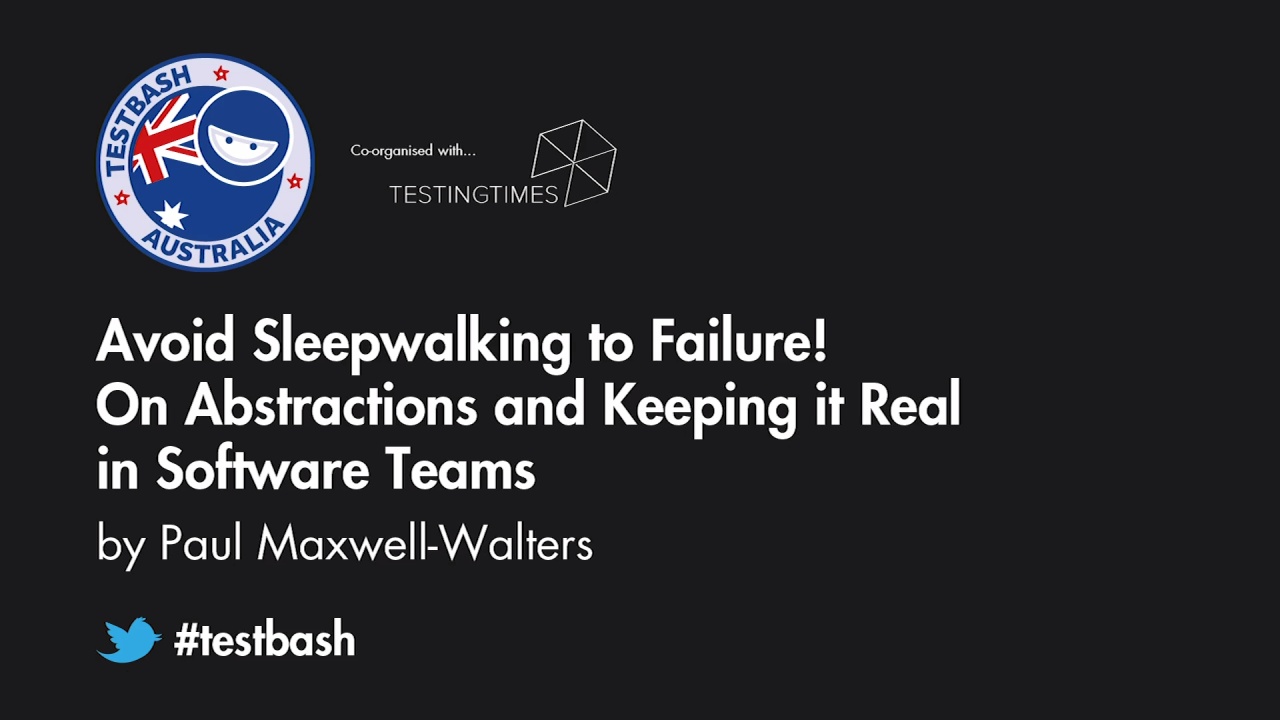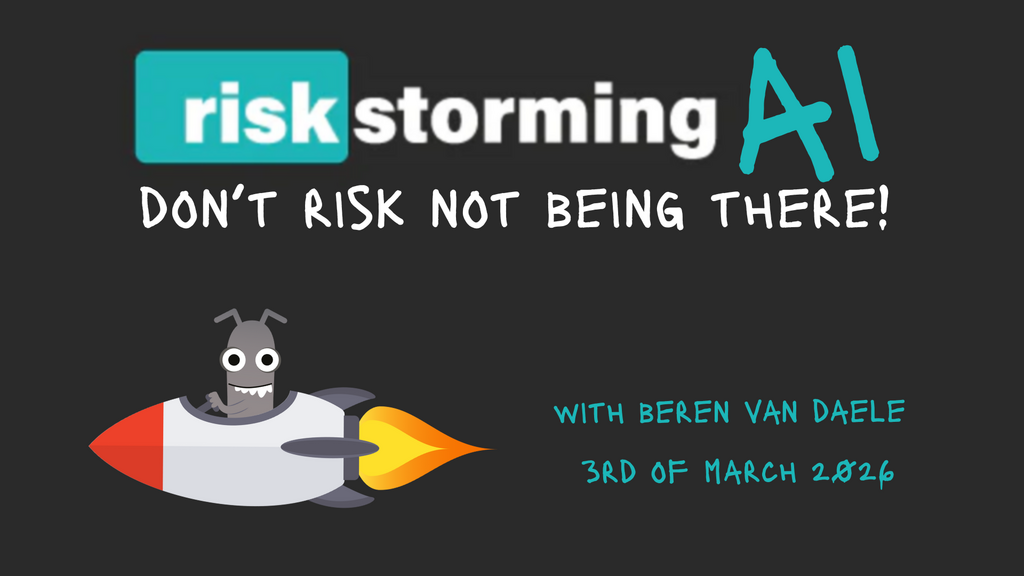Avoid Sleepwalking to Failure! On Abstractions and Keeping it Real in Software Teams - Paul Maxwell-Walters
-
Locked

Talk Description
Is your team sleeping towards failure? How do you "keep it real" in software engineering?
Using ideas from anthropology and postmodernism I theorise how some cherished concepts in software are difficult but seductive abstractions - and how not managing this causes software teams to drift to failure.
The talk is an abridged version of my blog article “Some Trust in Models! On Simulations, HyperNormalisation and Distorted Reality in Software Teams (Part 1)” http://testingrants.blogspot.com.au/2017/12/some-trust-in-models-on-simulations.html
In this talk I look at why projects can fail dramatically or release poor products after what appears to be smooth sailing beforehand. I theorize that this is because the project team members have trapped themselves in a “reality" that has no basis on the “true" status of the project, based on an inability to reconcile contradictions in some of our key concepts in software engineering.
To study the above I cover the pioneering work of Russian anthropologist Alexei Yurchak, who created the term "Hypernormalisation" to show how self-reinforcing propaganda and a refusal to see the collapse around them made Soviet citizens sleepwalk into the collapse of the Soviet Union. I tie this together with the work of postmodern sociologist Jean Baudrillard, who showed how society interacts with the world through increasingly abstracted simulations of reality - up to the point of where they have no relation with the real world.
Key Takeaways from the talk:
- An example of application of tools from anthropology and postmodern sociology to software engineering processes.
- A view of the various human biases and contradictions behind the concepts of quality, requirements, metrics and processes.
- How these affect and induce a "mini-hypernormalisation" in troubled software teams that mean they are removed from reality, sleepwalk into and even contribute to the failures of their projects.
- Ideas about how teams can prevent this.
I'm a British software tester based in Sydney, Australia with about 10 years of experience testing in financial services, digital media and energy consultancy. I am a co-chair, social media officer and an occasional speaker at the Sydney Testers Meetup Group along with speaking at other conferences in Australia. I blog on issues in IT and testing at http://testingrants.blogspot.com.au, along with having contributed an article to Testing Trapeze Magazine. I tweet on testing and IT matters at @TestingRants https://twitter.com/testingrants .
Suggested Content




